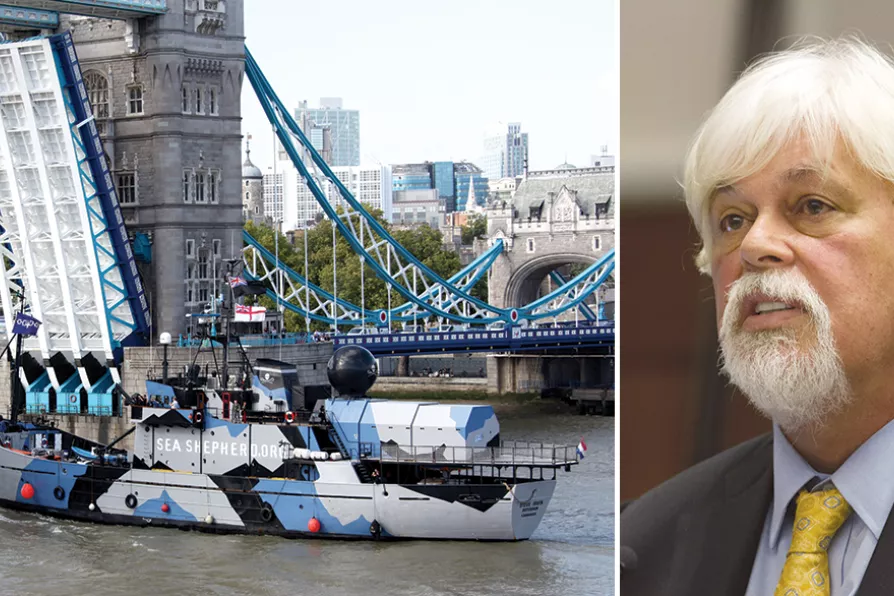John Wojcik pays tribute to a black US activist who spent six decades at the forefront of struggles for voting rights, economic justice and peace – reshaping US politics and inspiring movements worldwide

 FUTURES AT STAKE: (L to R) The MY (motor yacht) Steve Irwin going up river through Tower Bridge London in September 2011; Paul Watson, founder of the Oregon-based Sea Shepherd Conservation Society
[(Left) Jeffchat1/CC]
FUTURES AT STAKE: (L to R) The MY (motor yacht) Steve Irwin going up river through Tower Bridge London in September 2011; Paul Watson, founder of the Oregon-based Sea Shepherd Conservation Society
[(Left) Jeffchat1/CC]
HE is in extended detention awaiting a court date that could result in extradition to a country likely to imprison him for life. He has flowing white hair and two young children he has not seen in some time. He has consistently exposed illegal acts of violence and atrocities by a foreign government that have led to the loss of life.
He is not Julian Assange, who is now finally free. He is Paul Watson, who might never be. But unlike Assange, who garnered a powerful worldwide campaign to demand his freedom after he exposed US war crimes, Watson has not become an international cause celebre on the same scale.
Watson, a 73-year-old Canadian, is best known as a co-founder of Greenpeace and then Sea Shepherd. He left both organisations under acrimonious circumstances, establishing the Captain Paul Watson Foundation in 2022, where he serves as an unpaid director.
The lives Watson defends are not human ones but those of whales, seals, dolphins, and others he calls “magnificent wild creatures” of the sea. He embraces an activism he describes as “aggressive non-violence.”
That has meant getting in the path of Japanese whaling ships or those clubbing baby seals and attempting to stop what Watson says is “simply the largest massacre of wildlife on the planet.”
Now, that lifelong commitment to the preservation of ocean life may have cost Watson his freedom. On July 21, while docking his ship, the John Paul de Joria, in Nuuk, Greenland, Watson was arrested by Danish authorities.
He and his crew had been on the way to the north Pacific on a mission to intercept and block the Kengei Maru, Japan’s new and massive whaling ship, as it embarked on the slaughter of endangered fin whales.
Japan has been on Watson’s tail since an incident involving Sea Shepherd in 2010 in Antarctica when one of Watson’s crew members threw a stink bomb on board the Japanese whaling ship they were chasing. The Japanese claim it injured one of their sailors and further accused Watson of causing damage to the ship and trespassing. In 2012, Japan put out an international warrant for Watson’s arrest.
Since July 21, Watson has seen his hearing date in the Nuuk courtroom postponed six times by Judge Lars-Christian Sinkbaek, who insists that he cannot authorise an official hearing until the Danish Justice Ministry has ruled on whether to proceed with extradition. The next hearing is set for December 2, Watson’s 74th birthday.
Watson’s lawyers say the charges are politically motivated, that the stink bomb was harmless and not thrown by him and that the injury suffered by the Japanese crew member was the result of tear gas used by the Japanese themselves to try to deter the Sea Shepherd activists.
“The side where the Japanese sailor was supposed to be, he was not there, so they didn’t get injured by a stink bomb, it didn’t happen,” said one of Watson’s lawyers, Jonas Christofferson.

Despite opposition from Greenland’s people and Denmark, Washington intends to control the Arctic territory one way or another. Strategic dominance, mineral wealth and military power are the driving forces at play, writes ROGER McKENZIE












